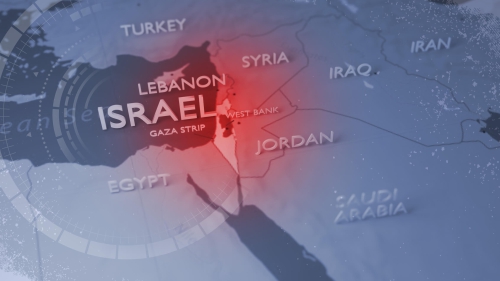An Uphill Battle for Future Investments in Palestine
Although Palestinian National Authority (PNA) officials openly admit to serious predicaments in the face of the desired progress in the Palestinian economy, they persistently strive to attract potential foreign investors to conduct business in The West Bank and Gaza.
It is evident that Palestinians are aware of their economic misfortune, resulting from lack of substantial political will. But the scarcity of any other employable options leave them desperately appealing to the world in ways and methods that change accordingly.
"If any of you can name a single incident involving the economic sector, I'd like to hear about it," PNA president Yasser Arafat challenged an American businessman who questioned the safety of the business environment in Palestine, especially against mostly unwelcome American influence.
Arafat, who was visiting the United States to ensure American support in the final status negotiations, briefed over 100 business representatives at The U.S. Chamber of Commerce, last Friday. In his closing statements, Arafat urged the gathering of wealthy American investors to join in rebuilding the damaged Palestinian infrastructure. "We cannot construct without help," first he said in an emotional tone. Then he quickly added that efforts are under way to "devise the most suitable laws for investment."
Back in Palestine, media frenzy against Palestinian investors abroad was in motion after a study revealed by the Ministry of Economy in the PNA, that total assets of Palestinian investors abroad exceed $100 billion. However, almost none of these resources were used to launch business ventures in the Palestinian territories.
A widely distributed daily newspaper in The West Bank dedicated its editorial, earlier this week to condemn wealthy Palestinians' failure in taking part in helping the dependent Palestinian economy and the ever-rising unemployment rate. The tone of the article manifested the increasing frustration that Palestinians are experiencing after over five years of having their own National Authority in charge.
"Those (meaning wealthy Palestinians) who acquired this capital were never freedom fighters, and their connection to Palestine was hardly comparable to their connection to the oil states or resorts in Switzerland and France. The whole struggle to them was merely an interesting topic in discussions filled with alcohol and filthy language," the editorial stated.
The author of the article prescribed an unusual method of curbing those individuals' apathy, by demanding the PNA to force them to choose one of two options: either moving part of their operations back to Palestine, or facing repossession of whatever properties they still possess in there.
It is obvious that such a perspective will have undesirable results. In fact, if any of the prescribed practices were carried out, even little attention generated from international investors would likely perish.
Mohammed Rashid, Arafat's personal economic advisor assured investors representing many countries assembled in Cairo mid September, that Palestine has the capacity to absorb immediate investments up to $8 billion. While many experts were surprised by such findings, others disagreed. One of those who refused to approve of such a claim described the idea of a fresh Palestinian economy as a dead one.
The strategic location of the West Bank and Gaza is in fact a considerable asset for a reliable and prosperous economy. A well-educated and skilled Palestinian work force with the frustration of many years of working for oppressive and ungrateful employers could enhance and speed the progress of rebuilding the infrastructure at a very expedient pace. Yet the "inherited devastated infrastructure," as described by Arafat, can never present a comeback without indisputable political sovereignty.
Political sovereignty, aside from the moral aspirations, is an unavoidable requirement for any economy to rise and grow independently. This dilemma confronts the PNA time and time again, forcing it to seriously re-examine what has already been agreed upon in earlier peace agreements with Israel.
Perhaps, early findings in the failing economy will motivate the PNA to be more careful before agreeing on any additional compromise in respect to political sovereignty and ultimate control of the borders. These are two factors which Palestinians can neither afford to lose nor compromise on, for time has shown that no one is interested in signing a deal with someone who does not have a recognizable signature.

















